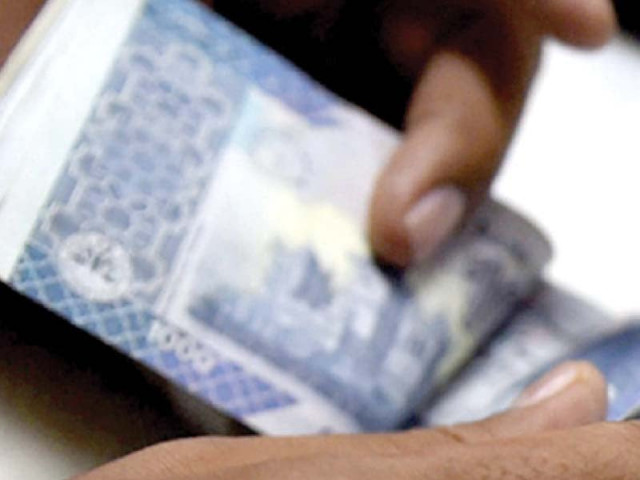Govt delays Covid spending report
Printing deferred as auditors find serious irregularities in expenditures

In violation of the International Monetary Fund (IMF) agreement, the federal government has asked the Auditor General of Pakistan (AGP) to delay the printing of a special audit report on Covid-related spending after the auditors unearthed serious irregularities in expenditures.
The government had committed that the AGP office would perform the ex-post audit of procurements of Covid-related supplies and social payments by the end of April 2021. The AGP department conducted the audit, including post-audit consultations with the relevant ministries.
However, a day before the expiry of deadline for finalisation of the audit report, the Ministry of Finance sought more time to clarify its position and requested not to print the report for the time being, a top official of the AGP department told The Express Tribune.
While reviving the stalled loan programme in March this year, the IMF Executive Board had approved a host of new conditions that Pakistan would have to implement for qualifying for the next loan tranche and completion of the 6th review of the programme.
READ AGP to start forensic audit of OMCs
There were two conditions related to expenditures to mitigate the impact of Covid-19 and ensure transparency. The government has committed to “timely publication of awarded contracts and beneficial ownership information of bidding and awarded legal persons on a centralised and publicly accessible website of the Public Procurement Regulatory Agency by end-April 2021 and ex-post audit by the AGP of Covid-related supplies and social payments by end-April 2021”.
Under the deal, the results of the audit report will be published on the website of the Ministry of Finance by the end of April, which the government has now violated. The government will now have to seek a waiver from the IMF.
The Ministry of Finance spokesman did not give a version. AGP department officials said that auditors had found serious violations of procurement rules and regulations, and instances of poor management of prime minister’s Rs1.24 trillion relief package.
The irregular payments were also made to spouses of government employees under the Benazir Income Support Programme (BISP), they added. The National Disaster Management Authority (NDMA) also made procurements against laid-down procedures and rules, said the officials.
The report also carries comments on tax refunds given by the Federal Board of Revenue (FBR) under the PM package.
The senior AGP department official said that the draft report had been shared with the Ministry of Industries and Production, Ministry of Health, NDMA, BISP and the FBR to seek their views, which had also been incorporated into the report.
The AGP presents its reports to the president of Pakistan, who then sends these to parliament for scrutiny by the Public Accounts Committee.
The senior AGP department official said that the department had written to the Ministry of Finance to hold a meeting this month aimed at finalising the special audit report.
The official said that some of the observations could be settled before the printing of the report, provided the Ministry of Finance satisfied the auditors.
The official said that the report had a detailed chapter on the overview and the management of the PM’s Rs1.24 trillion package. Actual spending against the Rs1.24 trillion package has remained very low, according to a summary prepared for the Economic Coordination Committee and a UK-funded report.
Prime Minister Imran Khan had announced the stimulus package in March last year aimed at supporting the economy to absorb the adverse impact of the pandemic.
The government had allocated Rs875 billion in cash expenditures, ie, areas with impact on fiscal balance from which Rs330 billion had been utilised or was in the process [of being utilised], which was equal to 38% of the cash package, according to the report.
But actual spending so far remained at only Rs297 billion or 34%, showed the UK-funded report.
The IMF had allowed the government to enhance Covid-19 related spending by about Rs200 billion but still the government could not fully avail this window.
Despite making announcement to renegotiate the IMF programme, sources said that no formal discussions have taken place between Pakistan and the senior IMF staff to renegotiate the programme before the presentation of the next budget.
Prime Minister Imran and Finance Minister Shaukat Tarin have termed the IMF conditions unimplementable in the prevailing circumstance. An IMF spokesman has already indicated that any such discussion would take place only at the time of the next review, which is after the budget.
In March this year, the federal cabinet had also approved a timetable for the outstanding power price adjustments, which include the FY21 annual rebasing of Rs3.34 per unit and quarterly tariff adjustments of Rs1.63 per unit to catch up with past deferrals.
Contrary to public announcement by the government, the National Electric Power Regulatory Authority on May 7 allowed 90 paisa per unit increase in power tariff under quarterly re-basing of tariff for the period July 2020 to December 2020.
The quarterly adjustment is on account of variation in power purchase price (PPP), capacity charges, variable operation and maintenance costs, use of system charges and impact of transmission and distribution losses and is part of the overall Rs5.65 per unit increase that Pakistan has committed to implement between April to September this year.
Published in The Express Tribune, May 20th, 2021.
Like Business on Facebook, follow @TribuneBiz on Twitter to stay informed and join in the conversation.



















COMMENTS
Comments are moderated and generally will be posted if they are on-topic and not abusive.
For more information, please see our Comments FAQ